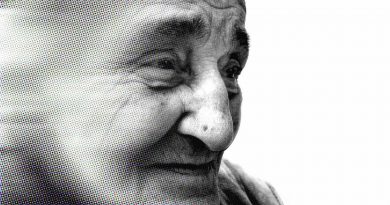'Snapchat dysmorphia': More people want to look like their doctored selfies
More people are wanting surgery to look like their enhanced selfie photo.
United States Remember the days when people would bring photos of celebrities to the plastic surgeon's office and ask for Angelina Jolie's lips or Brad Pitt's jawline? That's not the case any more.
Now, people want to look like themselves – heavily edited or filtered versions of themselves, that is.
Doctors have spotted a trend of people bringing in their own selfies, usually edited with a smartphone application, and asking to look more like their photos, according to an article recently published in JAMA Facial Plastic Surgery by researchers from the Boston University School of Medicine's department of dermatology.
The phenomenon is known as "Snapchat dysmorphia," and it's causing widespread concern among experts who are worried about its negative effect on people's self-esteem and its potential to trigger body dysmorphic disorder, a mental illness classified on the obsessive-compulsive spectrum.
"This is an alarming trend because those filtered selfies often present an unattainable look and are blurring the line of reality and fantasy for these patients," the article says.
Neelam Vashi, an assistant professor of dermatology at the Boston University School of Medicine and one of the article's authors, said that "Snapchat dysmorphia" is a result of people now being able to edit away any imperfections with ease.
"It's remarkable," said Vashi, who is also a board-certified dermatologist. "What used to lie in the hands of . . . celebrities and beautiful people who were innately beautiful made to look more beautiful, now it's in the hands of anyone."
On Snapchat, for example, the picture messaging application features upward of 20 different filters that users can toggle through by simply swiping across their phone screens. Aside from adding flower crowns or puppy ears, filters can give a person freckles, longer eyelashes, wider eyes and flawless skin, among other augmentations. Facebook, Instagram and Twitter also allow people to edit their photos in the application before uploading.
Other applications, such as Facetune, take things even a step further. For the low price of $US3.99 ($A5.40), users can have access to a host of editing tools that can do everything from teeth whitening to making a person's forehead, nose or waist smaller. The application has been lauded as "a Photoshop editing job in the palm of your hand" and even called "magical".
While people most often use filters or editing software for minor fixes such as clearing blemishes or plumping lips, Vashi said traditional cosmetic procedures largely couldn't reproduce the "instant fix" people saw in their edited photos.
"Sometimes I have patients who say, 'I want every single spot gone and I want it gone by this week or I want it gone tomorrow' because that's what this filtered photograph gave them," she said.
"They check off one thing, and it's gone. That's not realistic. I can't do that. I can make people a lot better, but it will take me a lot more time than a week and it won't be 100 per cent."
Of course, people have long obsessed about their looks, comparing themselves to the idealised images in the media, said Northwestern University psychology professor Renee Engeln during a 2013 TEDx Talk.
"Our sense of what's real, what's possible when it comes to beauty, is warped by our overexposure to these images," Engeln said. "Instead of seeing them for what they are, which is extraordinarily rare, we start to see them as typical or average."
Engeln described people who spend too much time worrying about their appearance as "beauty sick".
"When you are beauty sick, you cannot engage with the world," she said, "because between you and the world is a mirror. It's a mirror that travels with you everywhere. You can't seem to put it down."
However, the term "Snapchat dysmorphia" was coined just this year by British cosmetic doctor Tijion Esho.
According to the JAMA article, "Snapchat dysmorphia" is a form of body dysmorphic disorder. Also known as body dysmorphia or BDD, the condition is a mental disorder that causes people to be "extremely preoccupied with a perceived flaw in appearance that to others can't be seen or appears minor," according to the Mayo Clinic.
People who have BDD tend to obsess over their appearance and body image, often checking the mirror, grooming or seeking reassurance for many hours a day, the clinic said. Treatments include cognitive behavioral therapy and medication.
"Today's generation can't escape 'the Truman effect' because from birth they are born into an age of social platforms where their feelings of self-worth can be based purely on the number of likes and followers that they have, which is linked to how good they look or how great these images are," Esho told The Independent.
Until recently, only models and celebrities could take flawless, envy-inducing photos, the JAMA article said. However, given the accessibility of editing applications, once seemingly unattainable beauty standards now flood social media feeds daily and the "perfect" people in the photos are your friends, classmates and family members, the article's authors wrote.
"Our society is becoming more and more preoccupied, obsessed with social media and images and photographs and what we look like," Vashi said. "Now, everywhere you go people are taking selfies and then going on social media."
According to the annual American Academy of Facial Plastic and Reconstructive Surgery survey, selfies continue to be a major driving force behind people who wish to get plastic surgery done.
In 2017, the survey found that 55 per cent of surgeons reported seeing patients who requested surgery to look better in selfies – a 13 per cent increase from the previous year's results.
Being inundated by these edited images on a regular basis can take a toll on people, Vashi said, adding that looking at a photo of yourself and not seeing the same thing reflected in the mirror or an unedited photo can make people unhappy. In some cases, it can even lead to developing body dysmorphic disorder, she said.
"It can bring feelings of sadness and then if one really develops this disorder, that sadness clearly progresses to something that can be dangerous and alarming," she said.
A 2007 study published in Primary Psychiatry found that about 80 per cent of people suffering from body dysmorphic disorder "experience lifetime suicidal ideation and 24 per cent to 28 per cent have attempted suicide."
While various experts ranging from plastic surgeons to psychologists have cautioned against Snapchat dysmorphia, Vashi said it was unlikely people would change their behavior in the near future.
"It sounds like people are still going to do it because they like it. They like the way they look," she said.
"I'm just one small person in a big world, I can't change everything, but I can make people aware and recognize and know that it's not the real world. It's like living in a fantasy."
The Washington Post
If you or someone you know needs support call Lifeline 13 11 14, or Beyond Blue 1300 22 4636.
Source: Read Full Article




